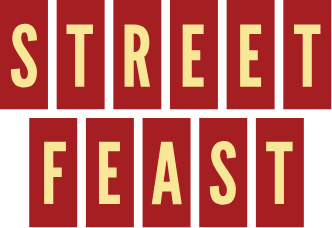Founders: Meriel Armitage
All Markets
'PEOPLE LAUGHED AT OUR VEGAN FOOD'
The final straw for my advertising career was giving a presentation on the personality of a Jammie Dodger. After I finished, I tried talking about it with clients in a tongue-in-cheek way, but they said “so tell me more about Choccy”. I just thought “oh my god, this is ridiculous” and handed my notice in the next day.
At that time (2013), London was pretty crap for vegan offerings. I’d lived and travelled in some vibrant food cities – Melbourne, LA, New York – and London just didn’t compare. I went to one of the very first Street Feast events and knew that this was where the exciting food was – but there was nothing I could eat. I felt frustrated by that, and with my passion for advertising dying, I knew I had to start something myself.
People don’t realise how much thought goes into preparing for a service. Club Mexicana began as a vegan supper club in Hackney and transitioning into that was the hardest thing I’ve ever done. There was a constant sense of “what am I doing?”. What do you pre-prep? What do you cook to order? How do you order the right quantities? How do you cost up dishes? Luckily I had some great people around me starting out, particularly friends who ran vegan cafés and helped me through.
Any food concept needs to be more than the food. You need to know what it would feel like to exist in your brand’s space. I had a vision that if you went into Club Mexicana it would be a tropical paradise with lilos, swimming pools and awesome 80s music. All the design flowed from there.
I shouldn’t really have been at my first Street Feast meeting – I came in through the back door. It was a catch-up meeting with traders, and I was just a +1 for my chef mate. I had no reason to be there, really. But I started introducing myself to as many people as possible, and saying “you need vegan food at your markets”. Then Street Feast got in touch and asked me to join them that summer (2014) at Dalston Yard. It all happened very quickly.
Building a strong brand with great colours was crucial. I don’t like saying it, but vegan places hadn’t really done that before – a lot of vegan places just weren’t cool. We built a strong brand from day one to pull people in. That got them to the counter, then we did the rest.

People laughed at us for doing vegan food at the time. If we told customers upfront that Club Mexicana was vegan they would pull a face of disgust or disbelief. So we didn’t shout about it – our menus listed our fillings and toppings, but we didn’t push the fact it was vegan. We wanted to let the food speak for itself. There were occasions when people lost their rag when they found out it was vegan.. but most of the time they would return the next week to order the same again.
The public perception of veganism started to shift when Beyonce and Jay-Z talked about going vegan. People started seeing it as a positive, aspirational thing – it became normalised, rather than associated with crusty hippies. That’s when I noticed more and more people started telling me they were trying to be vegan a few days a week. I still massively encourage that.
It’s hard to pinpoint one reason for the rise in veganism. There are many factors – the food offering has become so good and accessible, and social media has opened people’s eyes to the reasons people go vegan: animal welfare, health benefits, environmental concerns.
Not everything needs to be super authentic. We pride ourselves on being “inauthentic” Mexican. Being inauthentic means there’s no limit to how creative you can be – we take influences from the UK, the US, and beyond.
I don’t envy restaurants starting out in the social media age. Being as aware of the competition as people are now might have put me off launching Club Mexicana. It’s such a competitive market, and everybody’s worrying that so and so on Instagram has better food than they do. I always try to tell start-ups that it’s so important to stay true to what you do and not be hard on yourself.
There still aren’t enough women in the food and drink scene. Women role models are really important and there aren’t enough of them. It was mostly guys when I started. They’d stand in groups bragging about their equipment and how many portions they’d sold, so it wasn’t easy to “fit in”. But I’ve got a really inspirational mum – she taught me to be confident and pushy. I have a female business mentor too, and I mentor a few women-led businesses. It’s really important to me that women in the industry now have role models visible to them.
Part two with Rinku Dutt of Raastawala is available here
Join The Street Feast Weekly
Be the first to hear the latest Street Feast news including competitions, events and new traders. Privacy policy here

